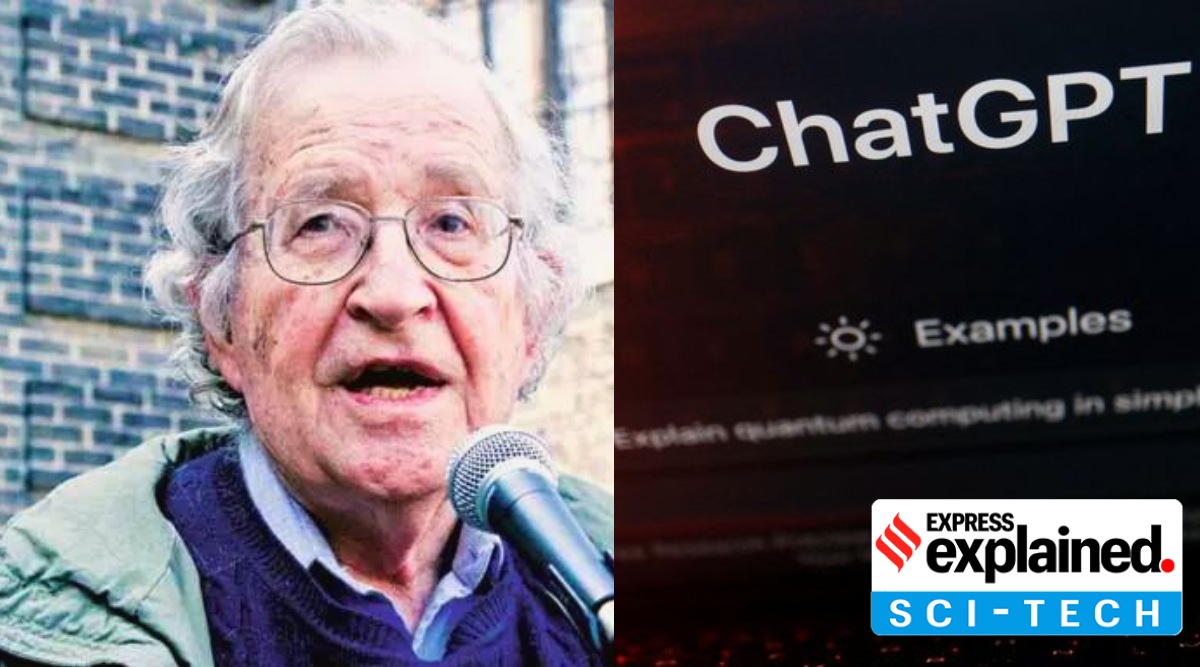Why Noam Chomsky has called the ChatGPT chatbot ‘basically high-tech plagiarism’
Since its launch in November 2022, ChatGPT has been the subject of intense debates. Numerous reports suggest that students are using the OpenAI-developed chatbot to write their homework, academic papers and essays.
 Chomsky, the world-renowned linguist said that for years, professors have used various programs to detect plagiarism, but as ChatGPT becomes more mainstream, “it’s going to be more difficult, because it’s easier to plagiarize”. (Photo on left via Andrew Rusk/Wikicommons, on right via REUTERS/Florence Lo).
Chomsky, the world-renowned linguist said that for years, professors have used various programs to detect plagiarism, but as ChatGPT becomes more mainstream, “it’s going to be more difficult, because it’s easier to plagiarize”. (Photo on left via Andrew Rusk/Wikicommons, on right via REUTERS/Florence Lo). The American philosopher and linguist Noam Chomsky described ChatGPT, an advanced artificial intelligence chatbot by OpenAI, as “basically high-tech plagiarism” and “a way of avoiding learning” during a recent interview. He also added that students instinctively using high technology to avoid learning is “a sign that the educational system is failing”.
Chomsky aired his opinion while discussing the future of academic essays in the backdrop of ChatGPT’s growing popularity. He was in conversation with the host of a YouTube channel, EduKitchen.
The world-renowned linguist said that for years, professors have used various programs to detect plagiarism, but as ChatGPT becomes more mainstream, “it’s going to be more difficult, because it’s easier to plagiarize”. He further mentioned that plagiarism is the only way that chatbots like ChatGPT can contribute to the education system.
While comparing the growing popularity of the chatbot to the rise of smartphones, Chomsky also said that students gravitate towards high technology to avoid learning if the classes aren’t interesting enough.
He said many students “sit there having a chat with somebody on their iPhone. One way to deal with that is to ban iPhones; another way to do it is to make the class interesting.”
Chomsky added that if the education system “has no appeal to students, doesn’t interest them, doesn’t challenge them, doesn’t make them want to learn, they’ll find ways out”.
Since its launch in November 2022, ChatGPT has been a subject of intense debates, especially in academic circles. Numerous reports suggest that students, both in schools and universities, are using the OpenAI-developed chatbot to write their homework, academic papers and essays.
Therefore, it didn’t come as a surprise when recently in the United States, public schools in New York and Seattle decided to block ChatGPT from their devices and WiFi networks. Not only this, Science Po, a prestigious university in Paris, has also announced a strict ban on its use. Even in India, ChatGPT has raised concerns across educational institutions. Last week, Bengaluru’s RV University prohibited its students from using the chatbot.
However, experts are divided on whether it should be banned or not. According to a report by Euronews, they suspect how effective the ban will be as students can access ChatGPT through other ways than school devices. Moreover, prohibiting access to a digital tool whose use is likely to grow in the future might prove detrimental to students.
An analysis published in The New York Times argued against the ban of ChatGPT, saying, “Today’s students will graduate into a world full of generative AI programs. They’ll need to know their way around these tools — their strengths and weaknesses, their hallmarks and blind spots — in order to work alongside them.”
- 01
- 02
- 03
- 04
- 05






































